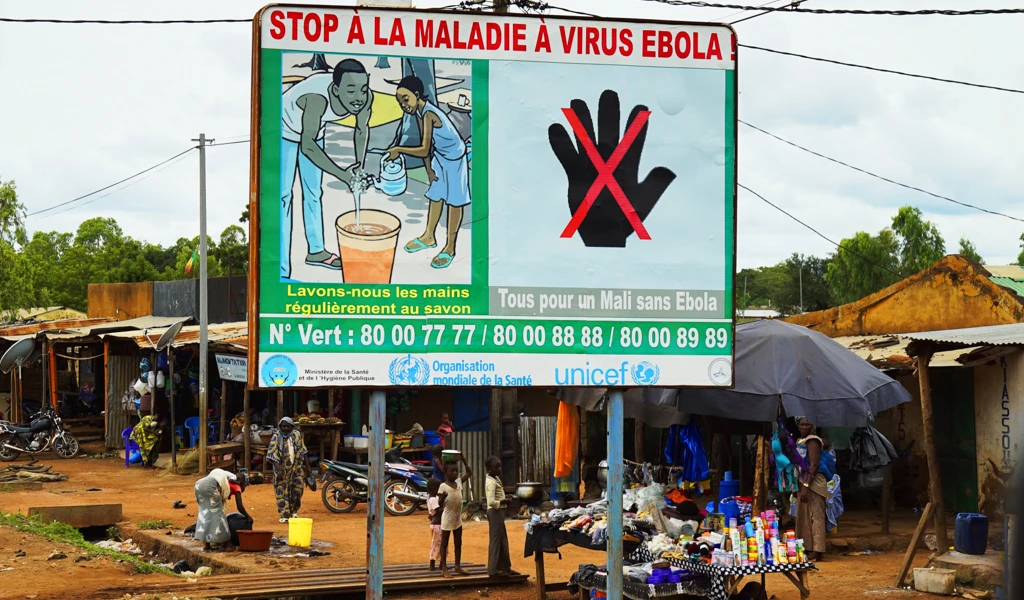CEPI launches new call for innovative platform technologies to rapidly respond to Disease X

Oslo, Norway; 15 October 2019—The Coalition for Epidemic Preparedness Innovations (CEPI) has today launched a call for proposals to invite funding applications for innovative platform technologies that can be used to develop vaccines and other immunoprophylactics to rapidly respond to future outbreaks of emerging infectious diseases and unknown pathogens, known as "Disease X".
In September, 2017, CEPI requested proposals for vaccine platform technologies that enable rapid vaccine development, elicit rapid onset of immunity, and whose production can be scaled-up quickly to respond to outbreaks of Disease X. To date, CEPI has committed up to $54 million to fund the development of a vaccine printer, molecular clamp platform, and a self-amplifying RNA vaccine platform.
We can be sure that another epidemic is on the horizon. It is not a case of if, but when. We need to be prepared. We need to invest in platform technologies that can be used to quickly respond to the emergence of a pathogen with epidemic potential.
That's why CEPI is boosting its funding for such platform technologies that can be used to make vaccines and other immunoprophylactics in a matter of weeks and months, instead of years, which is currently the case.
Our new call for proposals aims to advance the development of these technologies. Our criteria are broad, and the call is open for 12 months, in the hope that we're able to attract the best and brightest ideas from around the world. If we succeed in this endeavour, we will be able to equip humanity with the tools to combat Disease X and create a world in which epidemics are no longer a threat.
Threat posed by Disease X
The threat posed by Disease X is substantial—according to the Global Preparedness Monitoring Board report, published last month, there is a very real threat of a rapidly moving, highly lethal pandemic of a respiratory pathogen killing 50 to 80 million people and wiping out nearly 5% of the world's economy. The number of new emerging infectious diseases is on the rise. Disease X could arise through multiple routes: through viral or bacterial mutation; from zoonotic pathogens that jump from animals to human; or through artificial means. In recognition of this global risk, the WHO added Disease X to its Research and Development (R&D) Blueprint list of priority diseases in 2018.
To bolster global preparedness against this unknown threat, CEPI will not only expand its funding for vaccine platforms technologies but will also fund development of other immunoprophylactic platform technologies.
Immunoprophylactics
Vaccines aim to stimulate the immune system and to induce immunological memory that can protect against future disease. Vaccines can work in a number of ways. Some vaccines include either weakened or dead versions of a pathogen, antigenic proteins, or virus-like particles to elicit immune responses. Other types of vaccines introduce genetic material (ie, DNA or RNA) that programme certain cells to produce antigenic proteins.
Immunoprophylactics, on the other hand, aim to support or boost a person's immune system to fight back against potential infections. Some examples of immunoprophylactics include monoclonal antibodies that can be injected into humans to provide passive immunity. Other approaches may equip cells to produce their own antibodies against a specific pathogen, providing active immunity.
Open call for proposals
The new call for proposals is open worldwide to all types of non-profit research organisations, for-profit companies, international organisations and foundations, joint R&D ventures, government research organisations, and academic institutions. "Expressions of interest" can be submitted on an ongoing basis for 12 months. CEPI aims to fund multiple platform technologies through this call.
As part of CEPI's commitment to achieving equitable access, awardees will have to ensure that their vaccine candidate or immunoprophylactic product will be available in an outbreak situation to populations at risk including in low-income and middle-income countries, regardless of ability to pay. The new call also asks for improved timelines from identification of a pathogen sequence to the development of a vaccine candidate or immunoprophylactic product. By funding such projects, CEPI hopes to support the development of technologies that could rapidly produce material for clinical trials within 16 weeks from identification of antigen to product release.
Application information is available here.
_______________________________________________
Notes to Editors
About platform technologies
The term "platform technology" broadly refers to a system that uses the same basic components as a backbone, but can be adapted for use against different pathogens by inserting new genetic or protein sequences.
Techniques for platform manufacturing can be set up for rapid use against novel pathogens. Over time, as regulatory authorities gain experience with and gather data on a platform through its use, they will likely become more comfortable about rapidly moving new vaccines or immunoprophylactics—developed on such platforms—into clinical trials (this has been the case with influenza vaccines, which are developed every year on an existing platform).
About CEPI
CEPI is an innovative partnership between public, private, philanthropic, and civil organisations launched in Davos in 2017 to develop vaccines to stop future epidemics. CEPI has received multi-year funding from Norway, Germany, Japan, Canada, Australia, and the Bill & Melinda Gates Foundation, and Wellcome. CEPI has also received single-year investments from the Governments of Belgium and the United Kingdom. The European Union provides financial support for relevant projects through their Horizon 2020 programme as well as through the European and Developing Countries Clinical Trials Partnership. CEPI has reached over US$750 million of its $1 billion funding target. Since its launch in January 2017, CEPI has announced four calls for proposals. The first call was for candidate vaccines against Lassa virus, Middle East Respiratory Syndrome coronavirus (MERS-CoV), and Nipah virus. The second call was for the development of platforms that can be used for rapid vaccine development against unknown pathogens. The third call was for candidate vaccines against Chikungunya and Rift Valley fever viruses. The fourth call is for the development of platform technologies to develop vaccines and other immunoprophylactics to rapidly respond to outbreaks of unknown pathogens. To date, CEPI has committed to investing over $456 million in vaccine development. This includes 19 vaccine candidates against its priority pathogens (six against Lassa virus, five against MERS-CoV, four against Nipah virus, two against Chikungunya, two against Rift Valley fever) and three vaccine platforms to develop vaccines against Disease X. To assess the effectiveness of these platforms 7 additional vaccine candidates are being developed (two against influenza, one against Marburg virus, two against Rabies virus, one against Respiratory Syncytial Virus, and one against yellow fever).
Learn more at www.cepi.net. Follow us at @CEPIvaccines.
Media Contacts
Rachel Grant, Director of Communications and Advocacy, CEPI
+44(0)7891249190 | [email protected]
Mario Christodoulou, Communications and Advocacy Manager, CEPI
+44(0)7979300222 | [email protected]
Hero Image: Female Research Scientist Uses Micropipette Filling Test Tubes in a Big Modern Laboratory. In the Background Scientists are Working. Credit: ShutterStock.


